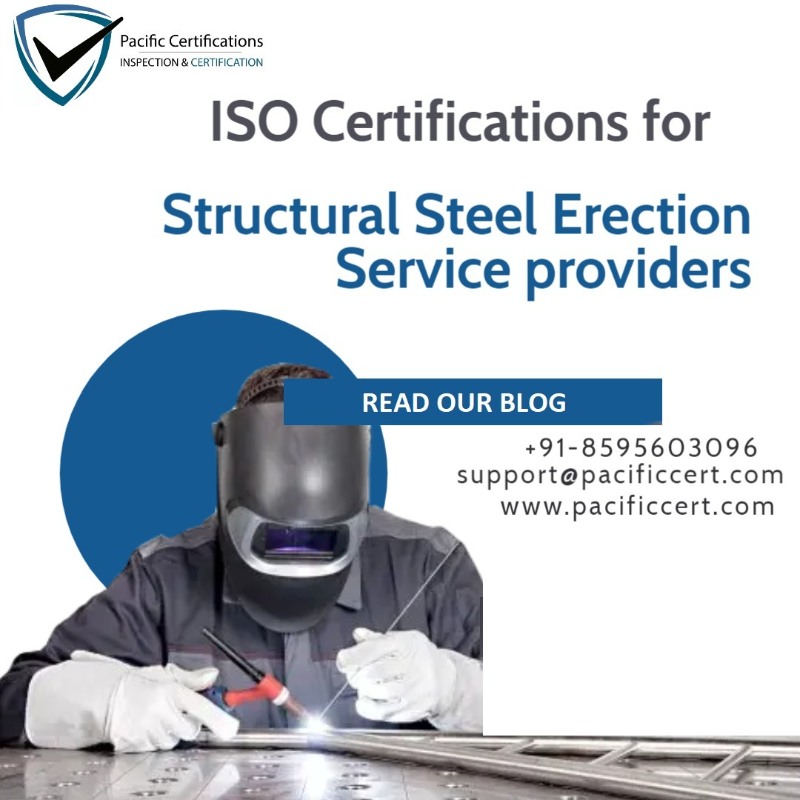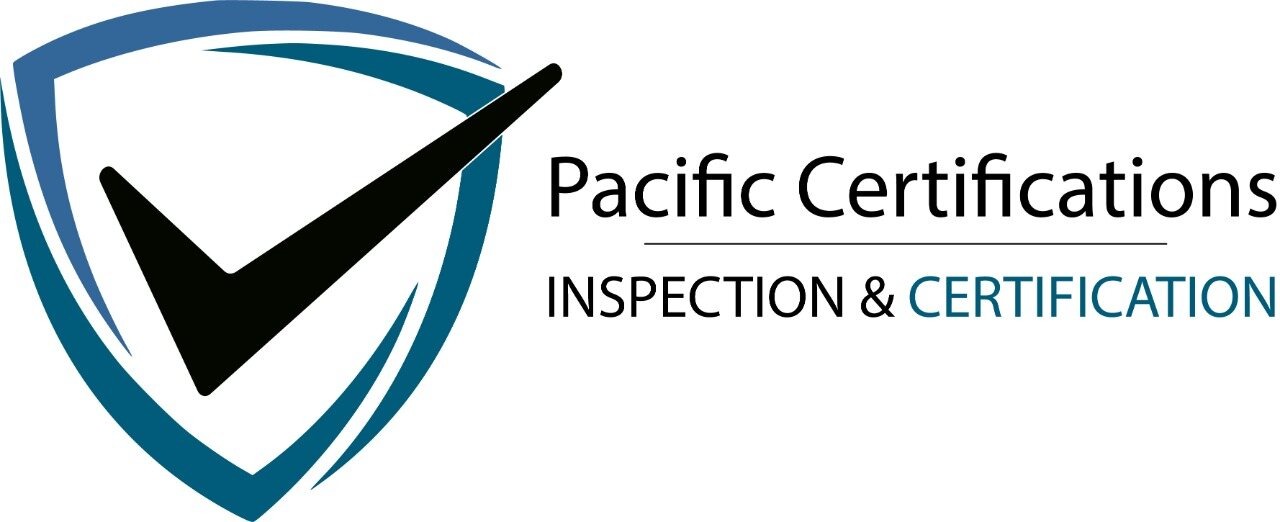ISO Certifications for Structural Steel Erection, Requirements and Benefits

Structural Steel Erection Service providers can benefit greatly from obtaining ISO certifications to demonstrate their commitment to quality, environmental management, occupational health and safety, and information security, among other areas. Below are some of the most relevant ISO standards that such service providers might consider:
ISO 9001: Quality Management System
This is perhaps the most versatile and widely recognized standard that can be applied to nearly any industry. It focuses on customer satisfaction, process optimization, and continual improvement. For a Structural Steel Erection Service provider, this certification could help in ensuring that the services meet customer and regulatory requirements while aiming for efficiency and improved customer relations.
ISO 14001: Environmental Management System
Given that construction and erection services can have a substantial impact on the environment, this standard is highly relevant. It helps organizations minimize their environmental footprint, comply with applicable laws and regulations, and continually improve in these areas.
ISO 45001: Occupational Health and Safety Management System
The nature of structural steel erection involves various high-risk activities such as lifting heavy items, working at height, and welding. ISO 45001 can help organizations to improve employee safety, reduce workplace risks, and create better, safer working conditions, all of which are especially important in high-risk fields like this one.
ISO 27001: Information Security Management System
While this may not seem immediately relevant, data and information management are critical to any modern business. This standard helps protect sensitive company information and any data entrusted by customers or partners, which in turn enhances your reputation and customer trust.
ISO 3834: Quality Requirements for Fusion Welding of Metallic Materials
This standard is specifically tailored for welding processes, an activity central to steel erection. It covers quality requirements and provides guidelines to ensure that welding is carried out in the most effective, efficient, and safe manner possible.
ISO 17662: Welding - Calibration, Verification and Validation of Equipment Used in Welding and Allied Processes
Given that welding is often a key part of structural steel erection, maintaining the reliability of welding equipment is crucial. This standard sets the requirements for the calibration, verification, and validation of equipment used for welding, including auxiliary devices.
CE Marking and HACCP (for applicable regions/products)
While not ISO standards, these are important certifications for product quality and safety, especially if you operate within the European Economic Area or deal with food and safety management.
Each of these certifications serves a different purpose and complements the others. Together, they can provide a robust framework for ensuring that a Structural Steel Erection Service provider operates to the highest standards of quality, safety, and efficiency.
For organizations looking to attain these certifications, Pacific Certifications offers a range of services from initial consultation through to certification issuance and beyond.
Requirements & benefits of ISO Certifications for Structural Steel Erection Service providers
Let’s delve deeper into the requirements and benefits of ISO certifications that are particularly relevant for Structural Steel Erection Service providers.
Requirements
- ISO 9001: Quality Management System
- Requirements: Documenting processes, customer focus, quality policy, objectives, internal audits, management reviews, and a commitment to continual improvement.
- Documentation: Quality Manual, Process Maps, SOPs, Work Instructions, and Records.
- ISO 14001: Environmental Management System
- Requirements: Environmental policy, identification of environmental aspects and impacts, legal requirements, objectives, targets, and programs.
- Documentation: Environmental Manual, Procedures, Operational Controls, and Records.
- ISO 45001: Occupational Health and Safety Management System
- Requirements: Health and safety policy, hazard identification, risk assessments, determination of legal and other requirements, objectives, and operational controls.
- Documentation: Safety Manual, Procedures, Work Instructions, and Records.
- ISO 27001:2022 Information Security Management System
- Requirements: Information security policy, risk assessment, risk treatment plan, Statement of Applicability (SoA), and operational controls.
- Documentation: Information Security Manual, Risk Assessments, Procedures, and Records.
- ISO 3834: Quality Requirements for Fusion Welding of Metallic Materials
- Requirements: Welding procedure specifications (WPS), welding coordinator qualifications, personnel qualifications, and quality requirements.
- Documentation: Quality Plan, WPS, Welder Qualification Records, and Inspection Records.
- ISO 17662: Calibration, Verification, and Validation of Equipment
- Requirements: Calibration procedures, verification methods, and validation of equipment.
- Documentation: Calibration Records, Verification Records, and Validation Reports.
Click here to explore more applicable standards
Benefits
- Quality Assurance: ISO certifications like ISO 9001 ensure that quality standards are met, which helps to build client trust and confidence.
- Environmental Stewardship: ISO 14001 helps companies minimize their environmental impact, which is becoming increasingly important in public perception and regulation.
- Safety Compliance: ISO 45001 ensures a safe working environment, reducing the risk of accidents and legal repercussions.
- Data Security: ISO 27001 certification demonstrates robust data and information security, a growing concern in all industries.
- Specialized Quality: ISO 3834 ensures high-quality welding, a crucial component in structural steel erection, thus reducing the risk of structural failure.
- Equipment Reliability: ISO 17662 ensures that all equipment used is calibrated and verified, reducing the risk of errors and ensuring high-quality outputs.
- Competitive Advantage: Certification often gives an edge in tendering processes, as it demonstrates a commitment to quality and continuous improvement.
- Regulatory Compliance: Many ISO standards help in complying with legal and regulatory requirements, reducing the risk of legal issues.
- International Recognition: ISO standards are recognized globally, making it easier for companies to expand their market reach.
- Cost Savings: Process optimization often leads to reduced waste and increased efficiency, thereby saving costs.
For Structural Steel Erection Service providers looking to achieve these certifications, Pacific Certifications accredited by ABIS, offers comprehensive services for each stage of the certification process, ensuring that organizations meet all requirements effectively. You can reach us at [email protected] or +91-8595603096 for your certification related requirement.

Read more: ISO Certifications for Cloud Hosting and Data Processing Services & applicable ISO standards
